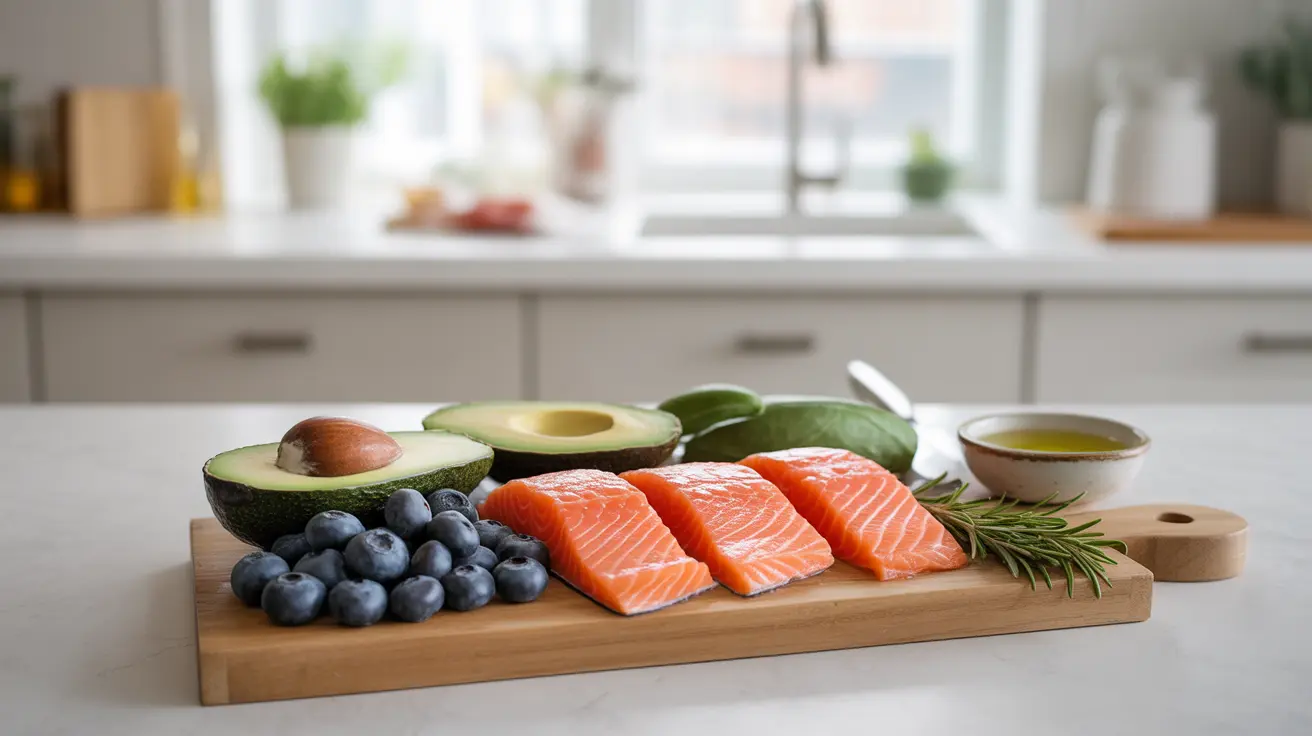Living with ulcerative colitis (UC) can be challenging, but adopting an anti-inflammatory diet may help manage symptoms and reduce flare-ups. This comprehensive guide explores how specific dietary choices can support your digestive health and potentially improve your quality of life while living with UC.
Understanding the relationship between diet and inflammation is crucial for people with ulcerative colitis. While there's no one-size-fits-all approach, certain dietary patterns and food choices have shown promise in reducing inflammation and supporting gut health.
Understanding Anti-Inflammatory Diets for Ulcerative Colitis
An anti-inflammatory diet focuses on foods that help reduce inflammation in the body while avoiding those that may trigger inflammatory responses. For people with ulcerative colitis, this dietary approach can be particularly beneficial in managing symptoms and maintaining periods of remission.
The Mediterranean Diet Connection
The Mediterranean diet has gained attention for its anti-inflammatory properties and potential benefits for UC patients. This eating pattern emphasizes:
- Fresh fruits and vegetables
- Whole grains
- Lean proteins
- Healthy fats, especially olive oil
- Fish rich in omega-3 fatty acids
- Limited red meat consumption
Foods to Include in Your Anti-Inflammatory Diet
When following an anti-inflammatory diet for ulcerative colitis, certain foods deserve special attention:
- Fatty fish (salmon, mackerel, sardines)
- Extra virgin olive oil
- Low-fiber fruits and vegetables (when cooked)
- Lean proteins
- Fermented foods (if well-tolerated)
- Turmeric and ginger
- Bone broth
Foods to Avoid or Limit
Some foods may trigger inflammation or worsen symptoms:
- Processed foods
- Added sugars
- Refined carbohydrates
- High-fat dairy products
- Alcohol
- Caffeine
- Spicy foods
- High-fiber foods during flares
Managing Diet During Different Disease Phases
During Flare-Ups
During active disease periods, focus on:
- Low-fiber, well-cooked foods
- Lean proteins
- Smooth nut butters
- Cooked vegetables
- Avoid raw fruits and vegetables
- Stay hydrated with water and clear broths
During Remission
When symptoms are under control, gradually introduce:
- More fiber-rich foods
- A wider variety of fruits and vegetables
- Whole grains (if tolerated)
- Probiotic-rich foods
- Healthy fats from various sources
The Role of Extra Virgin Olive Oil
Extra virgin olive oil plays a special role in an anti-inflammatory diet for UC. Its natural compounds, including polyphenols and oleocanthal, have demonstrated anti-inflammatory properties. Including 2-3 tablespoons daily in your diet may help reduce inflammation and provide essential healthy fats.
Frequently Asked Questions
What is an anti-inflammatory diet for ulcerative colitis, and how does it help reduce symptoms?
An anti-inflammatory diet for ulcerative colitis focuses on foods that help reduce inflammation while avoiding inflammatory triggers. It typically includes omega-3 rich foods, lean proteins, and cooked vegetables while limiting processed foods and known irritants. This dietary approach can help reduce symptoms by minimizing intestinal inflammation and supporting gut health.
Can the Mediterranean diet help manage ulcerative colitis flare-ups or prevent inflammation?
Yes, the Mediterranean diet can be beneficial for managing UC. Its emphasis on anti-inflammatory foods like olive oil, fish, and vegetables, combined with limited red meat and processed foods, may help reduce inflammation and maintain remission periods.
What foods should I eat and avoid on an anti-inflammatory diet for ulcerative colitis?
Focus on eating fatty fish, olive oil, lean proteins, and well-cooked vegetables. Avoid processed foods, added sugars, high-fat dairy, and foods that personally trigger symptoms. During flares, limit fiber intake and focus on easily digestible foods.
Is extra virgin olive oil good for people with ulcerative colitis, and how does it affect inflammation?
Extra virgin olive oil is beneficial for UC patients due to its anti-inflammatory compounds. It contains polyphenols and oleocanthal that help reduce inflammation in the body. Regular consumption may help maintain remission and support overall gut health.
How should I adjust my diet during a flare-up versus remission in ulcerative colitis?
During flare-ups, stick to low-fiber, well-cooked foods and avoid raw vegetables and fruits. In remission, gradually introduce more fiber-rich foods and a broader variety of fruits and vegetables while monitoring your tolerance to different foods.




